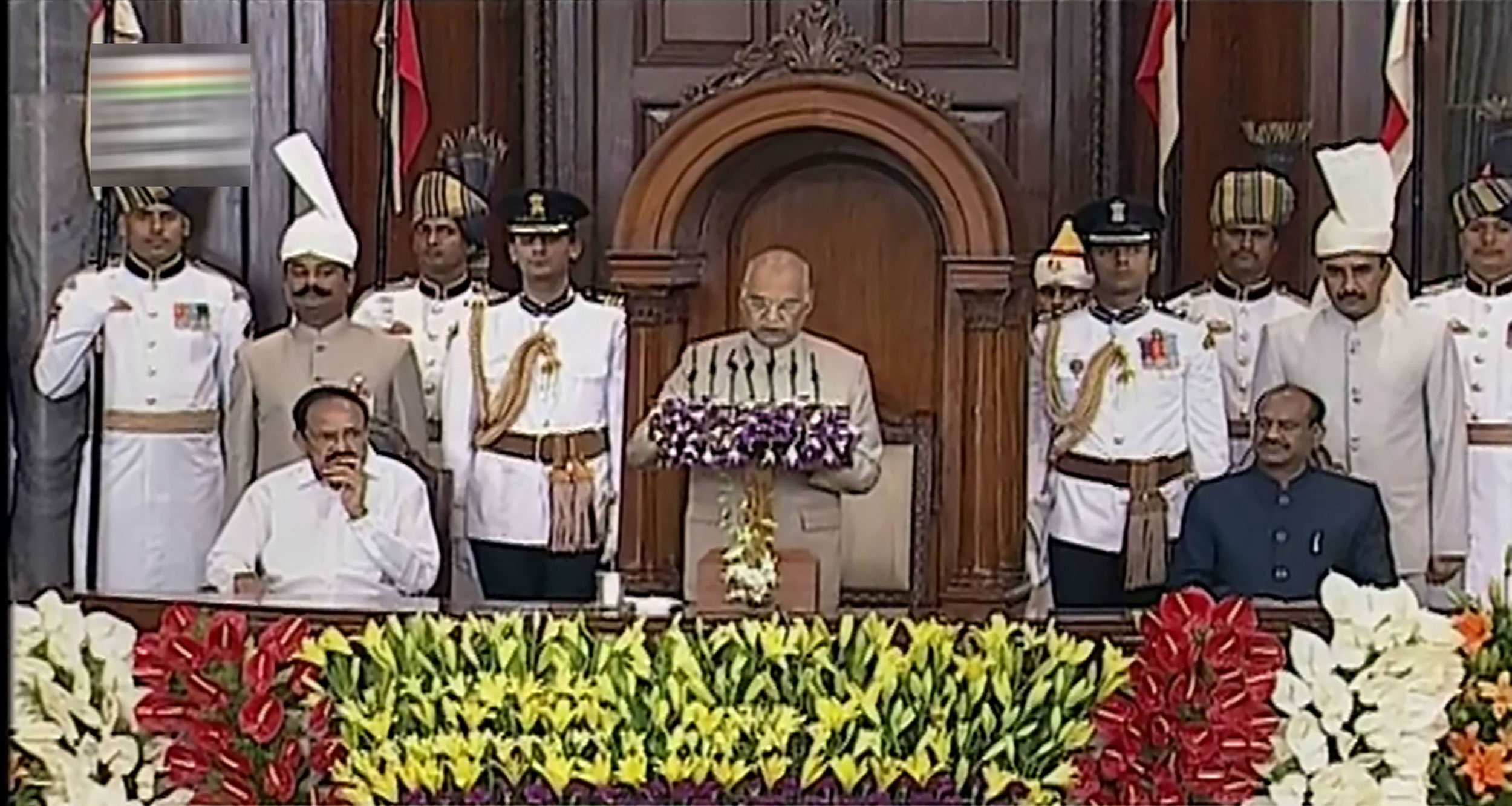Several former legislative officials known for their knowledge of parliamentary procedures have questioned two recent “mergers” — one involving Congress legislators in the Telangana Assembly and the other, Telugu Desam Party MPs in the Rajya Sabha.
On June 6, 12 out of 18 Congress MLAs in Telangana “merged” with the ruling Telangana Rashtra Samithi. This was a day after Telangana Pradesh Congress Committee president N. Uttam Kumar Reddy resigned from the Assembly following his election to the Lok Sabha.
On June 20, four out of six Desam MPs in the Rajya Sabha “merged” with the BJP.
The respective presiding officers — Speaker P. Srinivas Reddy in the Telangana Assembly and chairman M. Venkaiah Naidu in the Rajya Sabha — accepted the “mergers” sought under Paragraph 4 of the Constitution’s Tenth Schedule.
This provision exempts defectors from being disqualified if their respective parties merge.
The second sub-paragraph of Paragraph 4 says: “…the merger of the original political party of a member of a House shall be deemed to have taken place if, and only if, not less than two-thirds of the members of the legislature party concerned have agreed to such merger.”
In both the recent cases, the “mergers” were accepted on the ground that two-thirds of the members of the legislature party concerned — 12 out of 18 Congress MLAs in Telangana and four out of six Desam MPs in the Rajya Sabha — had supported the decision.
But former Lok Sabha secretary-general P.D.T. Achary said a legislature party could merge only if the original party had merged.
“Para 4 says that a merger between the original party (of the MLAs) and another party will only be recognised if two-thirds of the legislators of the original party agree to it, and not vice-versa. There is no merger of a legislature party if the original party itself has not merged,” Achary told The Telegraph.
“It is not enough for a merger to be accepted that merely two-thirds of the legislature party agrees to it,” he said.
The Congress and the TRS had not merged, nor had the Telugu Desam and the BJP.
The rebel Desam MPs would have to convince their party president, N. Chandrababu Naidu, to merge with the BJP. “They can only agree to a merger and cannot merge on their own,” Achary said.
The same goes for the rebel Congress MLAs.
The Telangana Speaker and the Rajya Sabha chairman had acted “outside their jurisdiction”, Achary added, saying they could intervene only when an aggrieved party files a petition under Paragraph 6 (of the Tenth Schedule) that deals with disqualification.
Another former Lok Sabha secretary-general, Subhash C. Kashyap, said: “The Speaker’s (and chairman’s in the Rajya Sabha) decisions are open to judicial review. Speakers of different states have ruled differently in these cases…. In my opinion, two-thirds of the membership agreeing to a merger is only one of the conditions. Only if two parties merge, and then two-thirds of the legislators join them, they are not disqualified.”
Former Delhi Assembly secretary S.K. Sharma said a merger on the strength of the support of two-thirds legislators is valid only if the legislators concerned are first recognised as a separate group.
“If two-thirds of the members of a legislature party come out of the party, and then merge with another party — it is valid... The first step is that they have to petition the Speaker to be recognised as a separate group. The split cannot be in parts (like in Telangana),” he explained.
In Telangana, the Congress MLAs had switched to the ruling TRS gradually over several months and their “merger” was recognised after the number of defectors reached the two-thirds mark.
The Congress legislature party’s petitions for their disqualification are pending with Reddy. The Congress has now moved Telangana High Court, which has issued notices to the Speaker and the 12 MLAs.
In the case of the Rajya Sabha “merger” too, the four Desam MPs requested the “merger” of the legislature party with the BJP without being recognised as a separate group.
“The Speaker’s decision in these cases is not privileged. His office functions as a tribunal and his decision can be challenged in and stayed by a court…. Speakers are political animals and he will protect legislators,” Sharma said.
The Desam has petitioned Venkaiah Naidu not to recognise the defectors as BJP MPs in accordance with the Supreme Court’s verdict in a 2012 case.
The court had said the “Speaker does not have any independent power to decide that there has been a split or merger” unless the Speaker is deciding on a disqualification petition.
The sole Indian National Lok Dal MP in the Rajya Sabha, Ram Kumar Kashyap, “merged” with the BJP on June 26 although there has been no merger of the parties.











